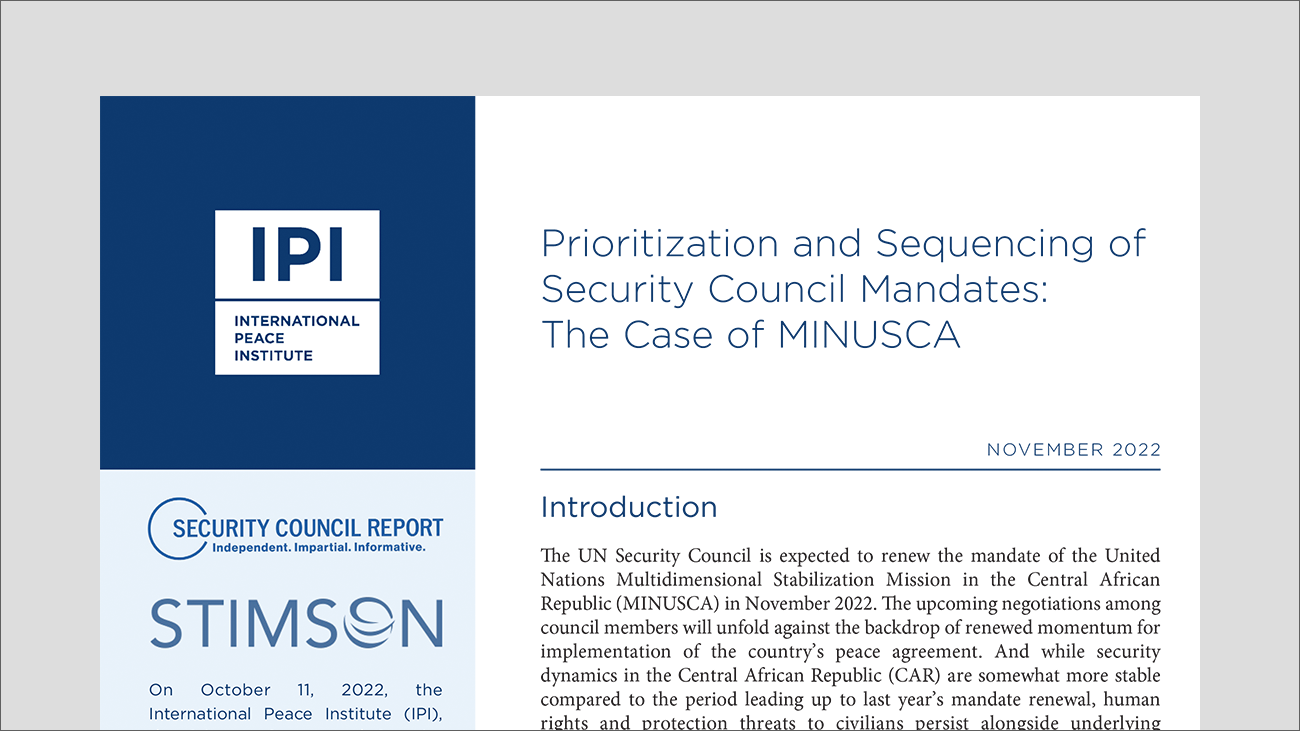
The UN Security Council is expected to renew the mandate of the UN Multidimensional Integrated Stabilization Mission in the Central African Republic (MINUSCA) in November 2022. The upcoming negotiations among council members will unfold against the backdrop of renewed momentum for implementation of the country’s peace agreement. And while security dynamics in the Central African Republic (CAR) are somewhat more stable compared to the period leading up to last year’s mandate renewal, human rights and protection threats to civilians persist alongside underlying challenges of limited service provision, poor socioeconomic development, and significant humanitarian needs.
In this context, the International Peace Institute (IPI), Security Council Report, and the Stimson Center co-hosted a roundtable discussion on October 11, 2022. This roundtable offered a platform for member states, UN officials, civil society stakeholders, and independent experts to share their assessments of the situation in CAR in a frank and collaborative manner. The discussion was intended to help the Security Council make more informed decisions with respect to the prioritization and sequencing of MINUSCA’s mandate and the mission’s strategic orientation and actions on the ground.
Participants agreed that MINUSCA’s strategic vision and priority tasks are still relevant to the UN’s overall engagement in the country. Participants also emphasized that the current mandate provides the mission with appropriate guidance to pursue the strategic direction provided by the Security Council while also giving the mission enough flexibility to pivot as new priorities or crises emerge. The mission will likely need to balance the following issues over the next mandate cycle:
- Supporting the government’s implementation of the Political Agreement for Peace and Reconciliation (the APPR) and the Luanda Joint Roadmap;
- Encouraging widespread civic engagement with and promoting the inclusivity of the formal political process;
- Continuing to coordinate political support from CAR’s regional and international partners;
- Strengthening its capabilities to conduct proactive, robust, and mobile protection efforts across the country;
- Safeguarding its human rights monitoring and investigation responsibilities;
- Maintaining a constructive dialogue with Central African authorities to ensure the mission’s freedom of movement and the effectiveness of its operations; and
- Laying the groundwork for accelerated delivery of humanitarian aid and long-term, locally driven development programming.
Participants emphasized that these points should all feature in the upcoming mandate and should be reinforced with unified political support from the Security Council and the country’s bilateral and regional partners.







